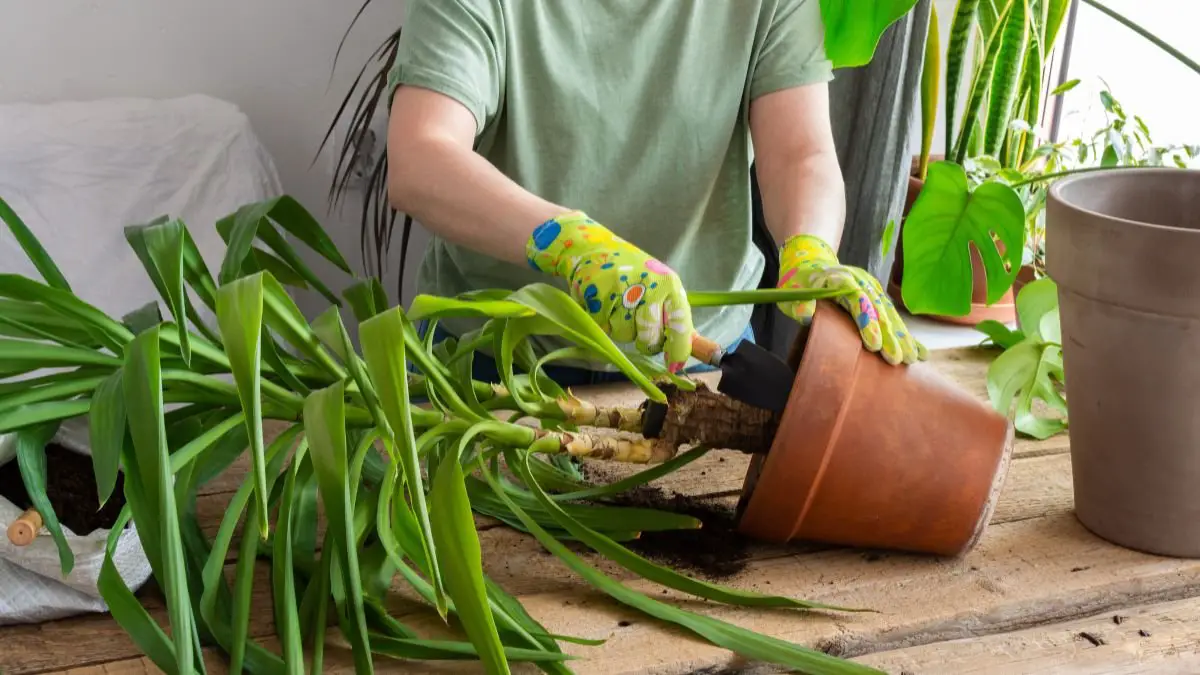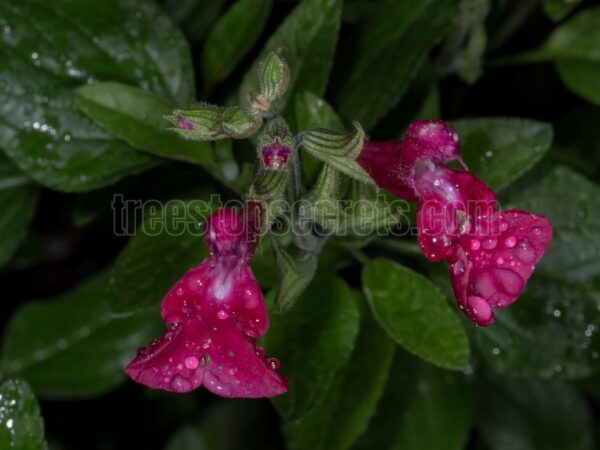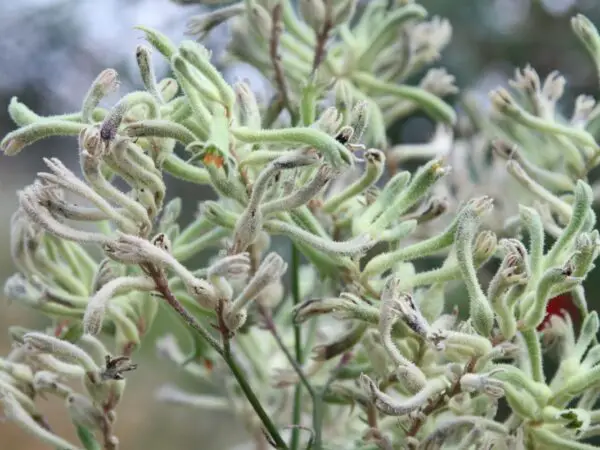Caring for yucca cane plants, an indoor plant, is essential for the growth and health of its leaves and roots. With the right techniques, you can ensure your yuccas, a desert plant, thrives indoors or on a patio in any environment. Understanding the historical context of these plants can provide valuable insights into their care requirements.
Key Takeaways
- Understand the specific care needs of your yucca cane plant to ensure its health and growth.
- Provide ample indirect sunlight for your yucca plant, as it thrives in bright but not direct light.
- Master the watering schedule by allowing the soil to dry out between waterings to prevent root rot.
- Practice essential care routines such as repotting when necessary and pruning to maintain the plant's shape.
- Supplement yucca care with tips like using well-draining soil and avoiding overwatering to promote a thriving plant.
- Remember fun facts about yucca canes, such as their air-purifying qualities and resilience to various conditions.
Understanding Yucca Care
Light Needs
Yucca plants thrive in bright indirect light to ensure optimal growth and development. Avoid exposing the plant to direct sunlight, which can cause leaf burn. To promote uniform growth, rotate the yucca occasionally.
Watering Techniques
When caring for a yucca plant, it's essential to water it only when the soil is mostly dry. Adequate drainage is crucial to prevent waterlogging, which can lead to root rot. For increased humidity, consider mist-watering the plant occasionally.
Soil and Fertilizer
For yucca plants, opt for soil that is well-draining to prevent water retention that can harm the roots. During the spring and summer months, fertilize the yucca monthly to support healthy growth. Be cautious not to over-fertilize as it can damage the plant.
Temperature and Humidity
Maintain temperatures for your yucca plant within the range of 65°-85°F for optimal growth. Yuccas are known to thrive in environments with low humidity levels. To avoid stressing the plant, steer clear of sudden temperature changes.
Deep Dive into Light Requirements
Amount of Light
To ensure the yucca plant thrives, it needs plenty of natural light daily. Consistent lighting is essential for its overall health and development. Avoid placing the yucca in areas with low light levels to prevent growth issues.
Importance of Lighting
Adequate lighting plays a vital role in the yucca plant's photosynthesis process. Insufficient light can hinder its growth, leading to stunted development. Bright light not only sustains its health but also enhances the yucca's visual appeal.
Mastering Watering Needs
How Much Water
Water yucca only when the soil feels dry to the touch, ensuring it is not moist. Avoid overwatering as it can lead to root rot and harm the plant. Adjust the watering frequency according to the season; in hotter months, more frequent watering may be necessary.
Watering Methods
When watering your yucca, pour water from the top until you see excess water draining out from the bottom of the pot. Always use room temperature water to prevent shocking the plant. Remember to empty any saucers under the pot to avoid water accumulation and potential root issues.
Essential Care Practices
Fertilizing Your Yucca
Yucca plants benefit from monthly liquid fertilizer applications to support their growth and health. Opt for a balanced fertilizer to ensure the plant receives all necessary nutrients. Adjust the feeding frequency based on the specific needs of your yucca.
Ideal Temperature
Maintaining a consistent temperature range between 65°-85°F is crucial for the optimal growth of yucca cane plants. Avoid exposing the plant to extreme temperature conditions, as they can negatively impact its health. Regularly monitor temperature changes to ensure the well-being of your yucca.
Humidity Levels
Yucca cane plants thrive in environments with low humidity levels, making them suitable for various indoor settings. Avoid excessively misting the plant to increase humidity, as this can lead to issues like root rot. Regularly monitor and adjust humidity levels to promote the overall health of your yucca.
Soil Preferences
When caring for a yucca cane plant, it is essential to use a well-draining soil mix that prevents waterlogging and promotes healthy root development. Avoid using soils that are too compacted or retain excessive moisture, as this can lead to root rot. If you notice the soil becoming overly compacted over time, consider repotting your yucca in fresh, well-draining soil.
Additional Care Tips
Trimming Your Plant
Trim your yucca cane plant by removing yellow or damaged leaves promptly. Keep the plant healthy and neat. Prune the plant regularly to maintain its desired shape and promote new growth effectively. Always use clean and sharp tools when trimming your yucca cane plant to prevent infections.
Propagation Techniques
Propagate your yucca cane plant by using mature pups, which are small offshoots growing near the base. During the fall season, carefully plant these pups in fresh soil to encourage healthy growth. After planting, ensure to water the newly propagated pups thoroughly to establish strong root systems.
Fun Facts About Yucca Cane
Edible Flowers and Fruit
Yucca plants are known for bearing edible flowers and fruit, adding a unique touch to your indoor garden. These flowers are not only beautiful but also have culinary uses.
Native Regions
Originating from Guatemala and southeast Mexico, yuccas thrive in warm climates with well-draining soil. Their natural habitat provides insights into their care requirements.
Beginner-Friendly Plant
Yucca canes are ideal for beginners due to their easy-care nature. They require minimal maintenance, making them perfect for those new to plant care.
Closing Thoughts
Mastering the care routine for your yucca cane plant is essential to ensure its health and vitality. By understanding its specific needs regarding light exposure, watering frequency, and overall care practices, you can create an optimal environment for your plant to thrive. Remember to keep these key points in mind as you continue to care for your yucca cane.
Incorporate the knowledge gained from this guide into your plant care routine, and observe how your yucca responds positively. Share these tips with fellow plant enthusiasts to help them enhance their yucca cane care practices too. Your commitment to providing the best care for your yucca not only benefits the plant but also contributes to a greener and healthier environment around you.
Frequently Asked Questions
How often should I water my yucca cane plant?
Yucca cane plants prefer to dry out between waterings. Water thoroughly when the top inch of soil is dry, usually every 1-2 weeks depending on the humidity levels in your home.
Should I place my yucca cane plant in direct sunlight?
Yucca cane plants thrive in bright, indirect light but can tolerate some direct sunlight. Position your plant near a window with filtered sunlight for optimal growth.
How can I prevent overwatering my yucca cane plant?
To prevent overwatering, ensure your yucca cane plant is potted in well-draining soil and a container with drainage holes. Allow excess water to drain out after watering and avoid letting the plant sit in standing water.
What are some essential care practices for my yucca cane plant?
Essential care practices include regular dusting of the leaves to maintain their health, occasional pruning to remove dead or yellowing leaves, and fertilizing during the growing season to promote growth.
Can I propagate my yucca cane plant?
Yes, you can propagate your yucca cane plant through stem cuttings. Simply cut a healthy stem from the main plant, allow it to callus for a few days, then place it in well-draining soil to root. Keep the soil lightly moist until roots develop.
Image Source: Paid image from CANVA




